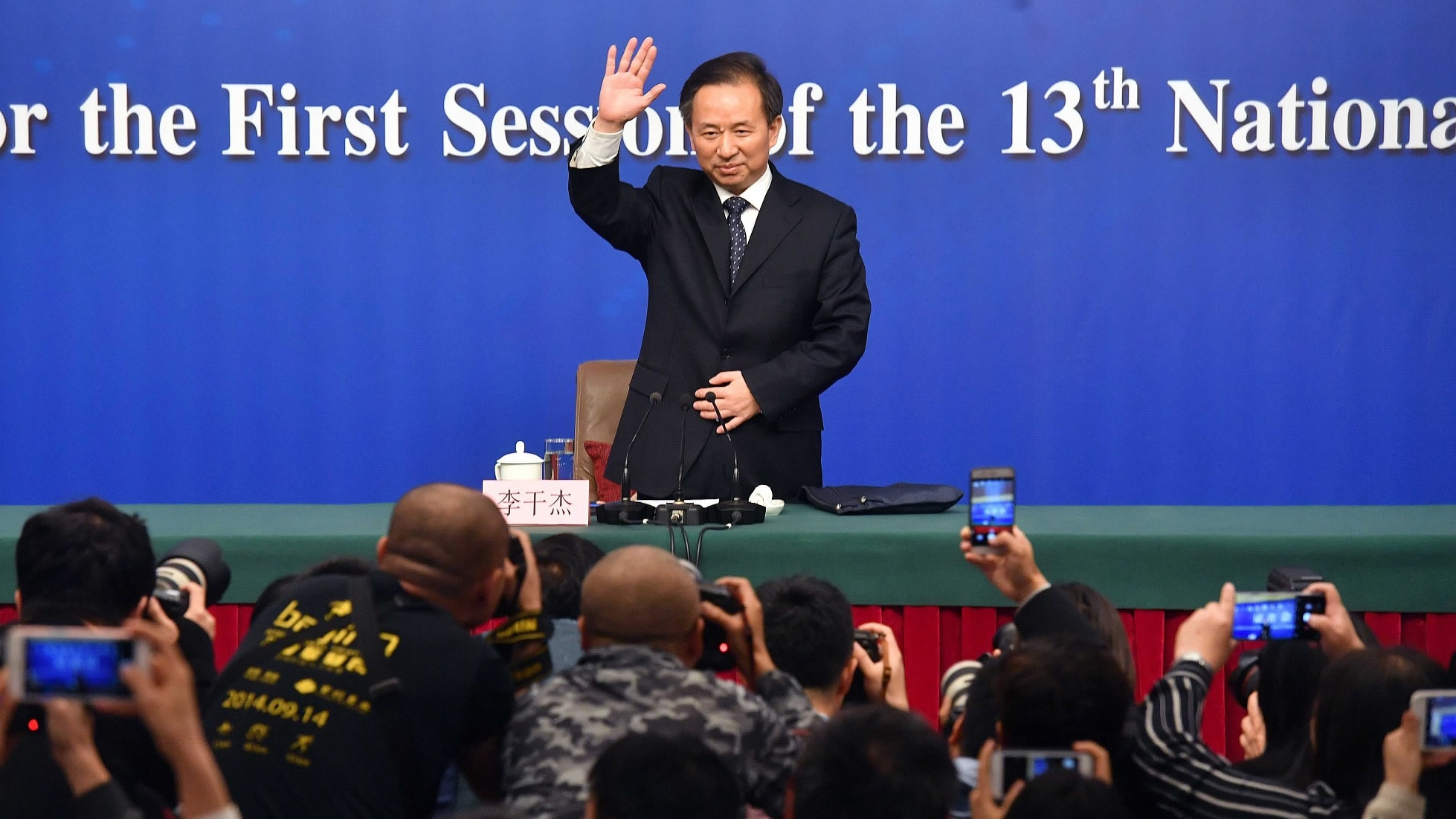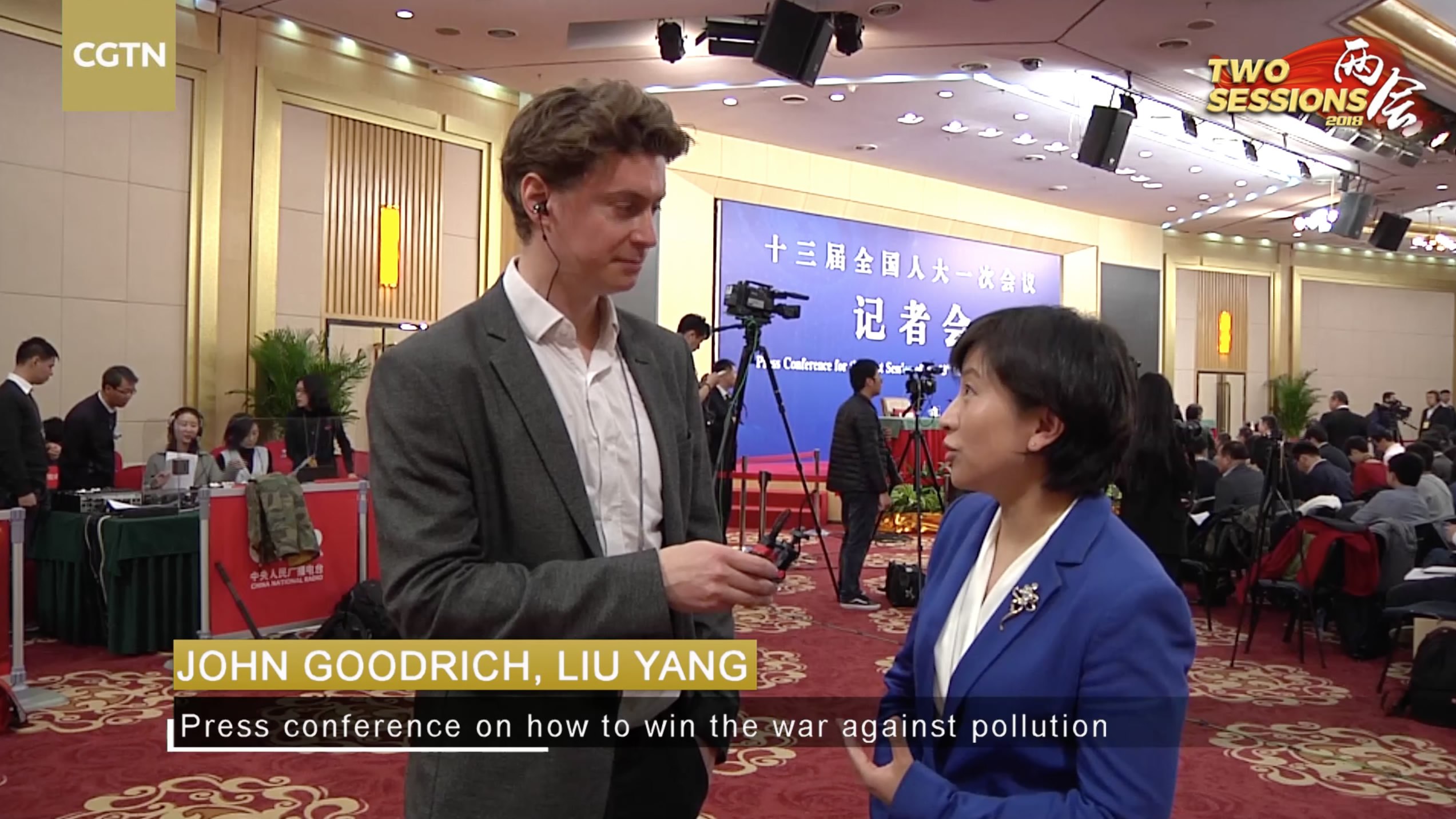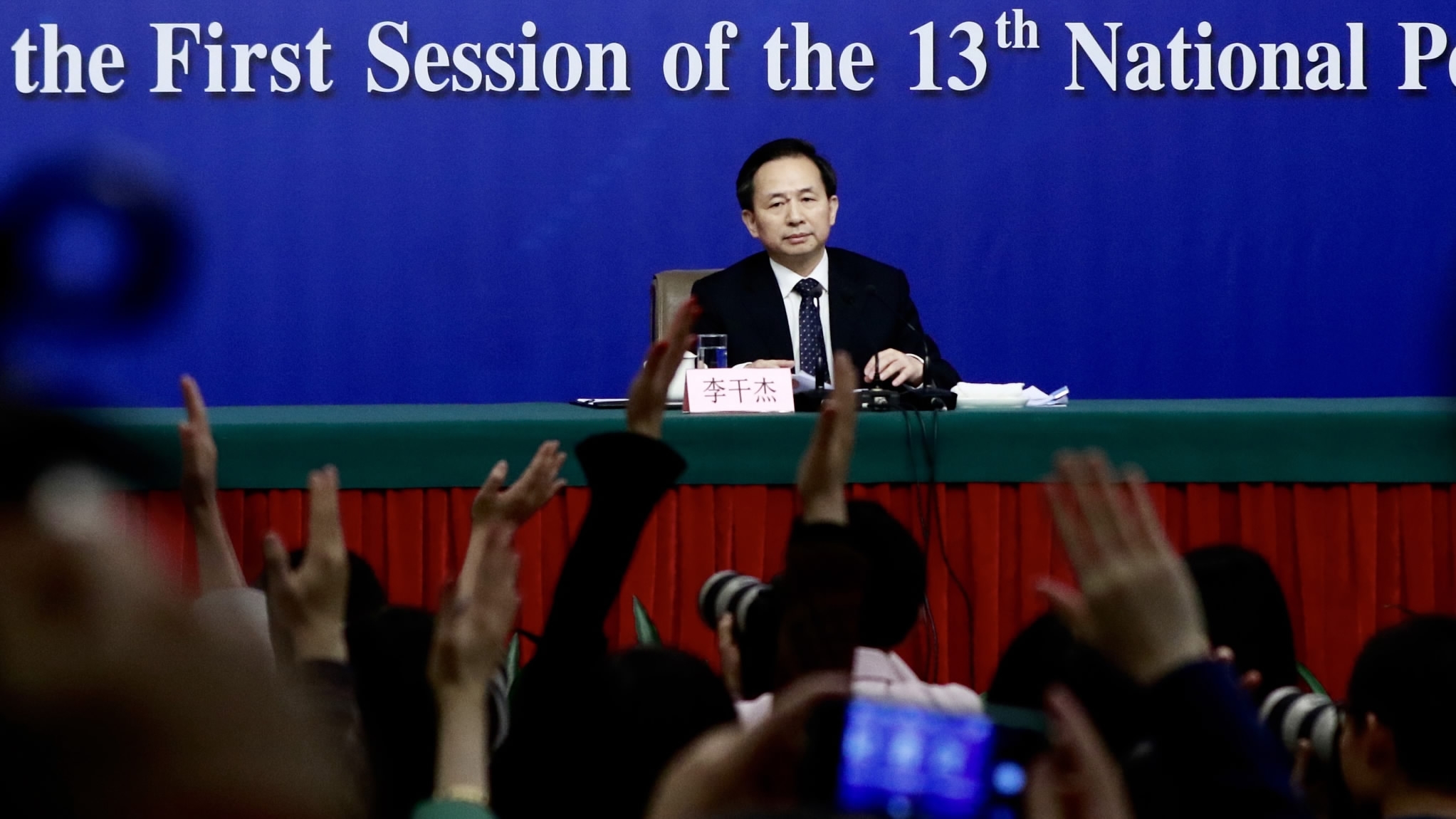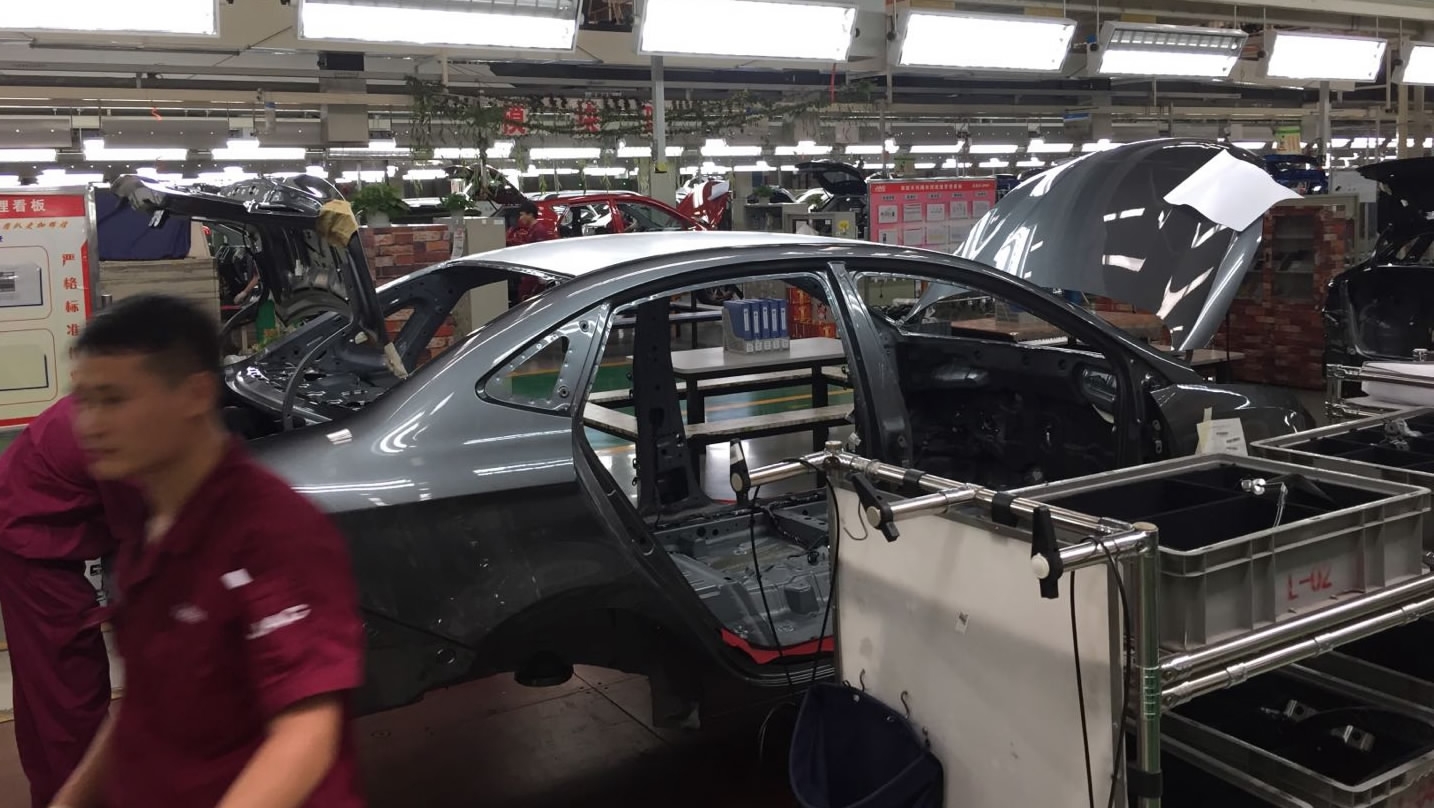
Politics
21:21, 17-Mar-2018
Reporter's Diary: Goodbye from a disappearing ministry
By John Goodrich

As a rare flurry of snow fell in Beijing on Saturday, the Ministry of Environmental Protection (MEP) prepared to bow out with its final Two Sessions press conference.
The ministry was effectively abolished earlier in the day, when the National People's Congress (NPC) passed a far-reaching plan to restructure the government – and disband the MEP.
Not that China is letting up on its environmental targets, of course – a new ministry will take on the MEP’s responsibilities, adding climate change and carbon emissions as well as soil, river and marine pollution. The aim is to consolidate responsibilities on environmental policy and implementation – a streamlined, efficient and focused ministry to help keep the country’s skies blue and waters clean.

CGTN reporters at the Ministry of Environmental Protection press conference in Beijing, March 17, 2018. /CGTN Photo
CGTN reporters at the Ministry of Environmental Protection press conference in Beijing, March 17, 2018. /CGTN Photo
Reporters trod gingerly along slippery Beijing streets to the Two Sessions media center to hear from the minister, Li Ganjie, about the progress his soon-not-to-be department had made and the reasons for the structural change.
Li outlined two clear reasons for the "milestone" institutional reform: Accountability, given responsibilities previously collided, or overlapped, between departments; and a clear separation of supervisor and enforcer.
"Under the reform, such problems will no longer exist, and supervision power will be well guaranteed," Li said.
The Two Sessions has featured reminders of the importance China places on environmental protection. The amendments to the country's Constitution, approved by the NPC last week, included the addition of the word “ecological.”

Ministry of Environmental Protection Li Ganjie takes questions at a press conference in Beijing, March 17, 2018. /VCG Photo
Ministry of Environmental Protection Li Ganjie takes questions at a press conference in Beijing, March 17, 2018. /VCG Photo
And the government work report set out three “critical battles” - financial risk, poverty, pollution. Minister Li took the language one step forward – fighting pollution, he said, is a "protracted war." It will be stepped up with tough new targets to curb smog.
China has made significant gains in that war in recent years – as Li, a man deft with lists, set out – and is making great strides in linking ecological protection to other priorities, such as quality economic growth and innovation.
The environment is an area of opportunity for innovative businesses. One example is the rapid development in electric vehicle production in China.
I had the opportunity to witness this first hand at the electric car facility of JAC Motors in Hefei, Anhui Province last year. My test drive around the compound had co-passengers worried – my "zuo" and "you" thinking time led to some sharp turns – but the scale of the factory and quality of the cars were impressive.

Inside the JAC Motors factory in Hefei, Anhui Province /CGTN Photo
Inside the JAC Motors factory in Hefei, Anhui Province /CGTN Photo
And this was just a small window into the industry. China has been the world leader in electric vehicle manufacturing since 2015 and is targeting seven million electric vehicle sales by 2025.
The country’s vehicle manufacturers are also hopeful of breaking into global markets aided by the growing global trend of phasing out diesel and petrol cars. Other Chinese companies are well-positioned in other areas of green business too, producing a majority of the world's solar panels and moving into cutting edge clean energy technologies such as hydrogen.
Investors and innovators looking for opportunities in China are surely looking at the green economy, which has so much room to grow. Not only is progress rapid, but the infrastructure is being built to support new technologies and the Chinese people have been quick to accept green innovations.
Saturday marked the end for the Ministry of Environmental Protection, but as Minister Li said: progress has been made, don’t be too proud – many challenges remain.
7km

SITEMAP
Copyright © 2018 CGTN. Beijing ICP prepared NO.16065310-3
Copyright © 2018 CGTN. Beijing ICP prepared NO.16065310-3